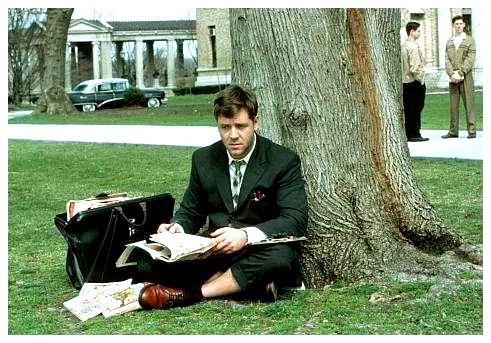Or: Two Rivets Short of a Paradigm
Detail from an author photo:
|
From rivet-rivet.net:
The philosopher Graham Harman is invested in re-thinking the autonomy of objects and is part of a movement called Object-Oriented-Philosophy (OOP). Harman wants to question the authority of the human being at the center of philosophy to allow the insertion of the inanimate into the equation. With the aim of proposing a philosophy of objects themselves, Harman puts the philosophies of Bruno Latour and Martin Heidegger in dialogue. Along these lines, Harman proposes an unconventional reading of the tool-being analysis made by Heidegger. For Harman, the term tool does not refer only to human-invented tools such as hammers or screwdrivers, but to any kind of being or thing such as a stone, dog or even a human. Further, he uses the terms objects, beings, tools and things, interchangeably, placing all on the same ontological footing. In short, there is no “outside world.” Harman distinguishes two characteristics of the tool-being: invisibility and totality. Invisibility means that an object is not simply used but is: “[an object] form(s) a cosmic infrastructure of artificial and natural and perhaps supernatural forces, power by which our last action is besieged.” For instance, nails, wooden boards and plumbing tubes do their work to keep a house “running” silently (invisibly) without being viewed or noticed. Totality means that objects do not operate alone but always in relation to other objects–the smallest nail can, for example, not be disconnected from wooden boards, the plumbing tubes or from the cement. Depending on the point of view of each entity (nail, tube, etc.) a different reality will emerge within the house. For Harman, “to refer to an object as a tool-being is not to say that it is brutally exploited as a means to an end, but only that it is torn apart by the universal duel between the silent execution of an object’s reality and the glistening aura of its tangible surface.” — From "The Action of Things," an M.A. thesis at the Center for Curatorial Studies, Bard College, by Manuela Moscoso, May 2011, edited by Sarah Demeuse |
From Wikipedia, a programming paradigm:

See also posts tagged Turing's Cathedral, and Alley Oop (Feb. 11, 2003).






